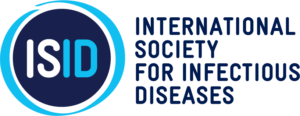A Legacy That Changed the World
When Edward Jenner introduced the smallpox vaccine over two centuries ago, he couldn’t have imagined the far-reaching ripple effect his discovery would have. Since then, vaccines have transformed the global health landscape. In the past 50 years, they have saved nearly 154 million lives—that is, six lives saved every minute across five decades1. From the launch of the Expanded Programme on Immunization (EPI) in the 1980s to today's expansive global immunization strategies, vaccines have become the backbone of public health. Smallpox has been eradicated, polio is teetering on the edge of extinction, and millions of children who once might not have lived past their fifth birthday are thriving.
Gavi and the Equity Revolution
In 2000, the launch of Gavi, the Vaccine Alliance, marked another turning point. Over two decades, this public-private partnership helped introduce lifesaving vaccines against Hepatitis B, Hib, pneumococcus, rotavirus, HPV, and more—to some of the world’s poorest nations and slashed the time between vaccine development and delivery.
Immunization Agenda 2030: The Vision to Leave No One Behind
In August 2020, WHO member states endorsed the Immunization Agenda 2030 (IA2030), a bold strategy to ensure that everyone, everywhere, at every age, can benefit from vaccines. IA2030 is grounded in four core principles: people-centeredness, country ownership, strong partnerships, and data-informed decision-making, which together serve as essential foundations for advancing global immunization efforts.
2025: Standing at a Crossroads for Immunization
As we mark World Immunization Week 2025, we find ourselves at a critical inflection point. The gains of past decades are threatened by conflict, misinformation, underfunded programs, and vaccine hesitancy. Statistics speak for themselves.
- In 2023, 14.5 million children received no vaccines at all - so-called zero-dose children2.
- Coverage of a third dose of vaccine protecting against diphtheria, tetanus, and pertussis (DTP3) was 84% in 20232.
- More than 30 deadly diseases are still waiting to be tackled through better immunization coverage.
Vaccines are more than personal protection—they are a collective shield. In our interconnected world, an outbreak anywhere is a threat everywhere. Diseases such as measles, cholera, or diphtheria do not respect borders. Prevention is the best defence strategy. This means that ensuring that:
- Children are vaccinated on time, and not just when the disease strikes.
- Adults, including pregnant women and the elderly, are protected.
- Communities are educated, engaged, and empowered to embrace vaccines.
The Growing Challenge of Vaccine Hesitancy
Vaccine hesitancy is an increasingly complex global issue. While safety concerns are often cited, the reality is far more layered—ranging from misinformation and mistrust–to cultural beliefs and logistical barriers. Crucially, there is no one-size-fits-all solution available. Clinicians must learn how to navigate these local realities with sensitivity and insight. Addressing hesitancy demands tailored communication grounded in a local understanding.
Immunization Week 2025: Uniting for Immunization—A Shared Responsibility for Global Health
World Immunization Week 2025 is a time to reflect on progress and renew our commitment to the global fight for universal immunization. The theme "Immunization for All is Humanly Possible" serves as a powerful call to action for all stakeholders:
- Parents and communities are encouraged to vaccinate themselves and their children.
- Governments are urged to invest in strengthening immunization services at both local and national levels to ensure every child is protected.
- Health workers play a crucial role in promoting the life-saving power of vaccines.
Achieving immunization for all is not just possible—it is a responsibility we must all share. Let’s unite to make it happen.
Written by ISID Emerging Leader, Dr. Tintu Varghese, MD, DTM&H

